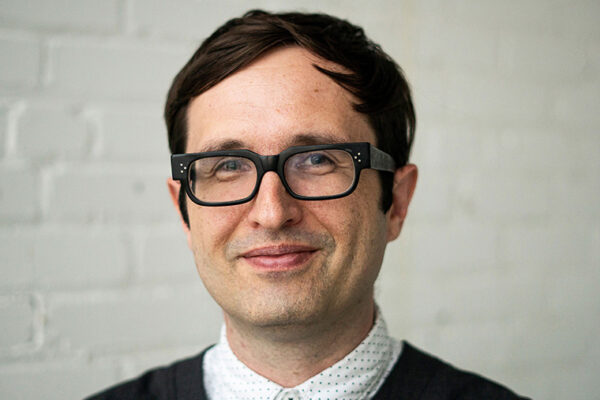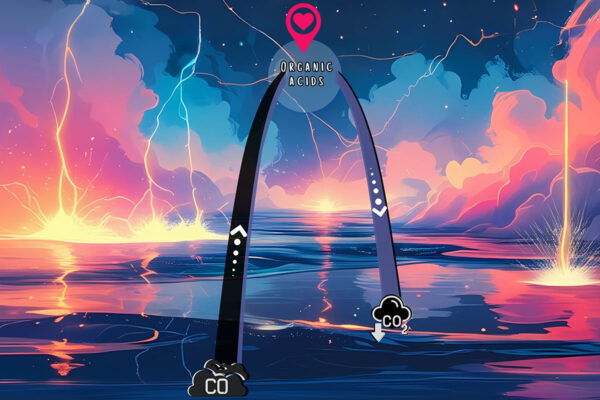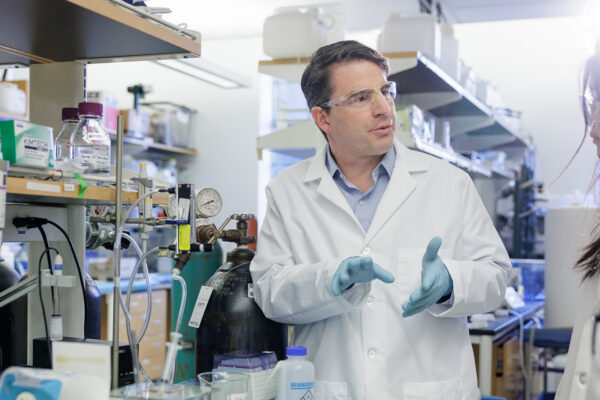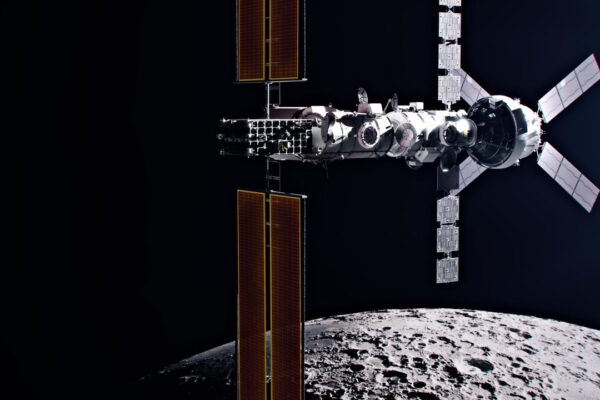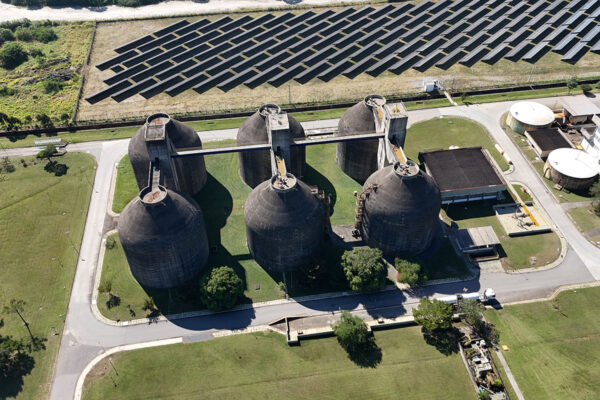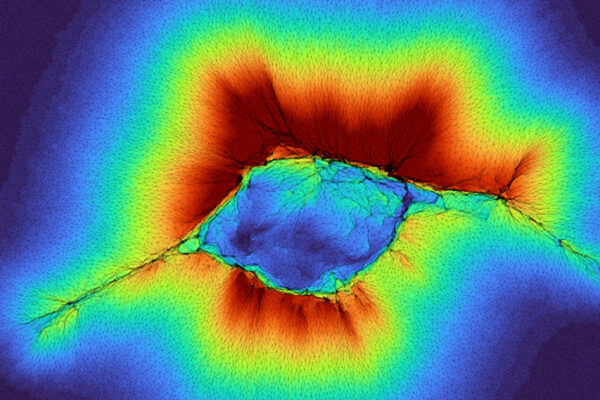Witt named inaugural Kavita and Krishna Bharat Professor
The Sam Fox School of Design & Visual Arts at Washington University in St. Louis has named Andrew Witt the inaugural Kavita and Krishna Bharat Professor, a role that focuses on the intersection of artificial intelligence with art, architecture and design, effective Jan. 1. The professorship includes a joint appointment at the McKelvey School of Engineering.
Career Catalysts: St. Louis Fellows cultivate new talents, help partners meet goals
Career Catalysts, a series about WashU interns, by WashU interns, profiles pre-law student Winston Mattson, a Gephardt Institute St. Louis Fellow and an intern at Seed St. Louis.
Plasma: The fourth state of matter drives sustainable carbon upcycling
Researchers at Washington University in St. Louis are developing ways to convert carbon monoxide into organic acids useful for industry.
Novel technologies underway to help those with spinal cord injuries move
A multidisciplinary team of researchers at Washington University in St. Louis plans to investigate the neural mechanisms behind various controls of transcutaneous spinal cord stimulation in generating different leg movements with a five-year, nearly $3 million grant the National Institutes of Health (NIH).
Tracking deadly and unpredictable postpartum hemorrhage
Researchers at Washington University in St. Louis are developing a wearable device that aims to track blood loss in pregnant women during delivery, with support from a $2.8 million grant from the National Institutes of Health (NIH). The device aids in early warning signs for postpartum hemorrhage, a birth complication that is the leading cause of maternal death worldwide.
Wearable imaging system could provide insight into preterm birth
A team of researchers at Washington University in St. Louis is developing an at-home wearable device that would monitor electrical and mechanical signals in the uterus during pregnancy and labor, with a four-year $920,769 grant from the National Institutes of Health (NIH).
WashU’s Trusted Tap will empower households to monitor water quality
Researchers at Washington University in St. Louis will empower people to monitor their own tap water with a project funded through the National Science Foundation.
WashU tapped for key role in future Artemis moon missions
In July, NASA formally designated WashU’s Geosciences Node, a division of NASA’s Planetary Data System that has been on campus since 1989, to serve as the lead science data node for the Artemis II, III and IV missions.
A silver lining in sewer sludge: volatile fatty acids
Researchers at Washington University in St. Louis are finding ways to efficiently reclaim useful intermediary chemicals from sewage instead of a more energy-intensive process for biogas reclamation.
Working together, cells extend their senses
Researchers at Washington University in St. Louis have found new rules for how groups of cells can sense beyond their surrounding environment, which can help in tracking how cancer moves and how wounds heal.
Older Stories
